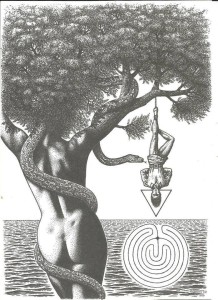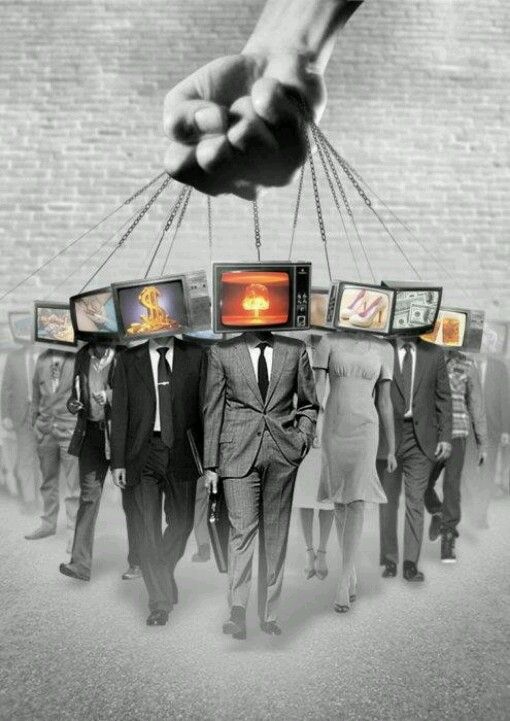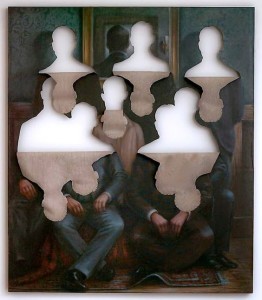The Official Story
I don’t think anyone doubts, at this point in American history, that the mass media frames the official narrative.
Much is made of the fact that different media fiefdoms lean either to the “left” (HuffPo, MSNBC) or “right” (those earnest liberals now gobsmacked with incredulity about where all the Trump supporters came from have apparently failed to notice the rise, all these years, of Fox News.)
But this semblance of plurality is also part of the narrative.
And it doesn’t change the fact that, all across the corporate media, certain lines of inquiry are promoted and others are verboten. There’s no room in any of the news reports for deep-structure questions.
Unasked questions
For example, about the effective meaning of democracy in a post-Citizen’s-United world. Or about the weight of a voter’s opinion in a system where, realistically, lobbyists determine which policies prevail.
Or about the role special interests play in creating political polarization, which stems from legislators answering to campaign contributors rather than voters.
These realities are hardly privileged information. Everybody knows about them. But we have to be okay with ignoring them, if we want to participate in the collective discussion.
The Elephants
If we aren’t okay with ignoring them – if, in fact, we see them as the elephants in the middle of the room, without the acknowledgement of which no discussion of the electoral system makes any sense – then we need to abort our identification with the media narrative, and call it for what it is: a  presentation of reality that’s not just about opinion control, but worldview control.
presentation of reality that’s not just about opinion control, but worldview control.
It’s propaganda, something that’s usually identified only by history, not by the group upon whom it is being practiced. (The natal signature for the immense power of the American telecommunications industry is the U.S. Mercury (media) in the 8th [corporate wealth] opposed to Pluto [plutocratic interests], discussed here.)
Fox News, the most obvious offender, is notorious for force-feeding its viewers with answers. But the problem with Big Media as a whole is much more serious.
It dictates the questions that are asked.
 Death match
Death match
Thus CNN et al and their controllers in Washington decide to give airtime to the army’s new policy of putting women on the front lines, but to say not a word about its policy of guarding Chevron’s oil fields in Nigeria. They decide that an insult to the grieving parents of veteran Humayun Khan is more worthy of discussion than why that young man died.
Thus Trump’s despicable antics get our daily attention, whereas the far more encompassing corruption — that representatives of the 1% like Roger Aisles, get to decide what’s newsworthy — does not.
Serving up the presidential election as a gladiatorial death match between two super-rivals is Big Media’s masterstroke. By locking the event into a dualistic template, they keep it arrested at the most primitive rung of the intellectual ladder. This minimizes the likelihood of impulses arising in the populace that could threaten the system as it is.
It can’t last, of course. This year’s Revenge of the Outsiders (Trump and Sanders) threw the status quo for a loop, and the next big fissure in the bulwark will be the US Pluto Return in 2022.(1)
The Election and The Rest of the World
Meanwhile, if we want to engage with this grotesque circus without surrendering our integrity, we have to decide for ourselves what level we want to talk about it on.
We might choose, say, the level of foreign policy. Certainly, a geopolitical perspective would seem a tad more apposite than obsessing about gendered bathrooms.
Relevant here is Clinton’s record in her last job, that of Secretary of State. We haven’t been hearing squat about this in the news, of course. The media is too busy cashing in on the latest vulgar outrage tossed off by the Orange Caligula.
Hillary’s negative polling is chalked up to a vague perception of personal “untrustworthiness”, whereas scant attention is paid to aspects of her record that are not in the least vague, and that genuinely warrant the concern of all peace-loving citizens. Such as her well-documented policies on foreign intervention (according to Zaid Jilani of The Intercept, “D.C. foreign policy elite are giddy that hawkish Barack Obama will be replaced by much more hawkish Hillary Clinton.”)
WikiLeaks
Those of us who see our vote mostly as a means of keeping the Tangerine Man-Baby out of the White House probably have ambivalent feelings right now towards that rascal Julian Assange. But of interest here is the way his carefully timed Wikileaks dump is complicating, for Americans of conscience, the dualistic straightforwardness of this election.
Says Glenn Greenwald: “Republicans who long vilified [Wikileaks] as a grave national security threat have become its biggest fans (“I love WikiLeaks,” Donald Trump gushed [on Oct 12th], even though he previously called for Edward Snowden to be executed), while Democrats who cheered the group for its mass leaks about Bush-era war crimes now scorn it as an evil espionage tool of the Kremlin.”
Small potatoes
For Americans yearning for a more peaceful world, the errors of judgment that Hillary does get pilloried for are small potatoes by comparison to her military record. Of course, this pales by comparison to what her predecessors have done. But that gets no coverage, either.
Nobody’s comparing her e-mail meshugaas to, say, the over-the-top malfeasance of Reagan’s Iran-Contra affair. Untrustworthiness much? Nobody’s comparing her vote for the Iraq War to that of the Bush gang, who started the war on the strength of a pack of lies and got away with it scot-free. Such comparisons might provide a soupcon of perspective.
But is it enough perspective to teach us anything? To get drawn into an argument about what any particular state department did, or didn’t do, still skirts the issue of systemic rot. 
What if we focused, instead, on the whole superpower set-up? Starting perhaps with the role in it — the actual role — of the US military,
 made up of young soldiers overwhelmingly from America’s underclass, who are fulsomely extolled, in theory, before being betrayed, by both parties, in practice (e.g. through disgracefully insufficient veterans’ services).
made up of young soldiers overwhelmingly from America’s underclass, who are fulsomely extolled, in theory, before being betrayed, by both parties, in practice (e.g. through disgracefully insufficient veterans’ services).
Our fighting men and women
Here’s an institution that every voter pays for, but which bears not a shred of resemblance to the preserving-our-freedoms claptrap we hear from all the candidates. The disparity between the way most Americans view the military, and what that military actually is — an indentured global police department that serves the ruling class — is not simply an ideological disparity, of the hawk-vs.-dove variety.
It’s a  disparity based on the public’s failure to keep up with fundamental changes in the nature of war. Since 9/11, the lines have blurred between peacetime and wartime; between homegrown soldiers and subcontracted mercenaries; between superpowers waging
disparity based on the public’s failure to keep up with fundamental changes in the nature of war. Since 9/11, the lines have blurred between peacetime and wartime; between homegrown soldiers and subcontracted mercenaries; between superpowers waging  war and their client states waging it; between war crimes and acceptable military practice.
war and their client states waging it; between war crimes and acceptable military practice.
Ignorant of the new realities, Americans are too confused and overwhelmed to notice and object to their government’s outrages (see How Everything Became War and The Military Became Everything, by Rosa Brooks.)
Bringing freedom
All the politicians allowed at the podium, while differing on the fine points, share a point of view that hinges on the  assumption — a museum piece of an assumption, lovingly preserved as if in amber, despite the learning curves of the 1960s — that the USA’s foreign adventures are all about exporting democracy to the rest of the world.
assumption — a museum piece of an assumption, lovingly preserved as if in amber, despite the learning curves of the 1960s — that the USA’s foreign adventures are all about exporting democracy to the rest of the world.
The true role the Pentagon plays in the conquests and the theft of natural resources in Africa, Asia and the Middle East is entirely absent from the national conversation. Were it to be included, it would be clear to one and all that it hardly matters who occupies the White House.
To put the election into this kind of context could free up people’s minds enough to imagine wrenching this country from its death spiral onto a brand new course.
Beyond the presidency
Such imaginings would reach far beyond the presidency, so they cannot be accommodated in the prevailing narrative, whose fundamental function is to keep us thinking that nothing matters more than the choreographed prizefight now lumbering under the stage lights.
But here’s where the fresh air can enter in. The minute we realize we don’t have to buy into the predictable approach, all kinds of more creative points of entry open up. Beyond left-vs-right; beyond the USA-vs.-the-world. What other levels could help us learn from this thing?
How about the cosmic? To be continued…
Note

1 My essay on the US Pluto Return, “Right Use of Power,” is in The Mountain Astrologer, Feb/ March 2014.



